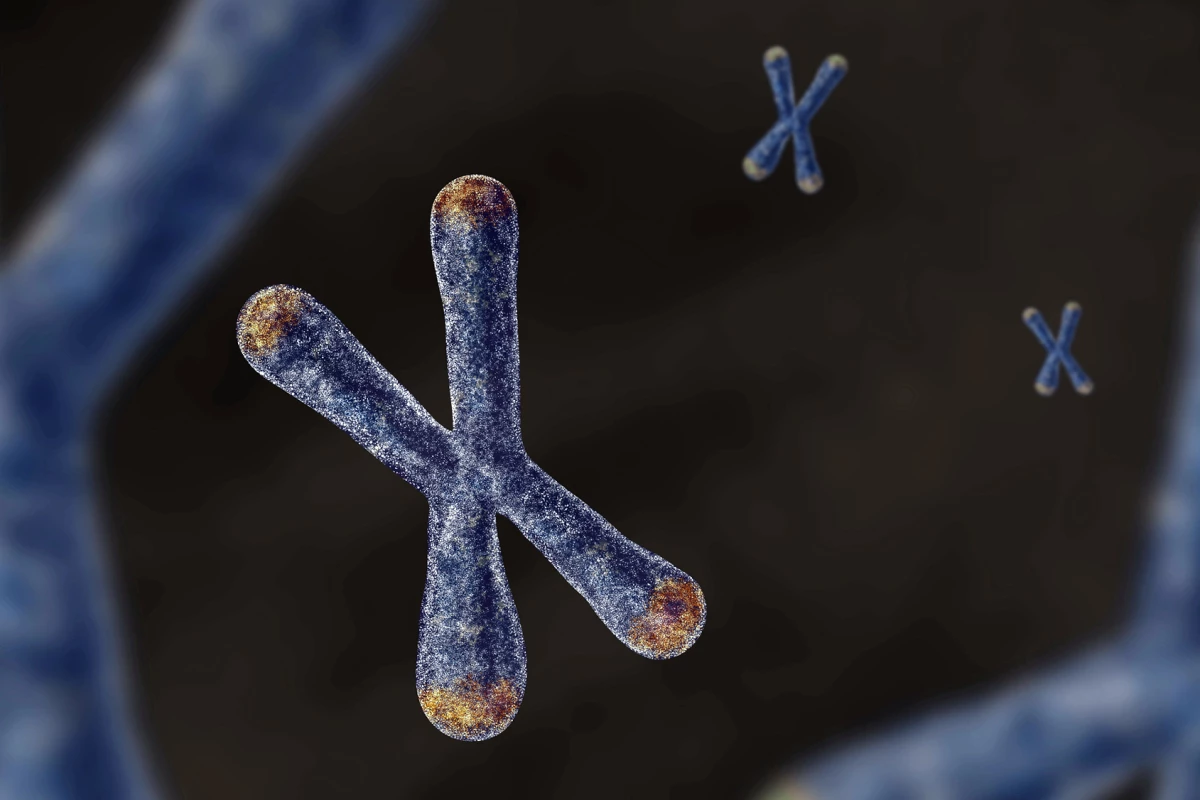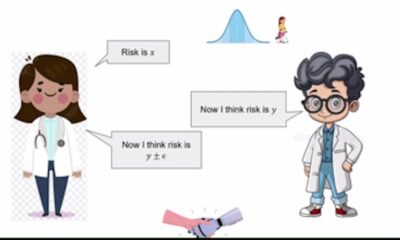Health
Study Reveals How Parental DNA Shapes Aging and Disease Risk

A study from the University of Pennsylvania has uncovered significant insights into how parental DNA influences aging and the risk of diseases like cancer. Researchers found that not only do parents pass on telomere length, but they actively shape it during the early stages of embryonic development. This groundbreaking work could reshape our understanding of genetic inheritance and its implications for health.
Telomeres, the repetitive DNA sequences at the ends of chromosomes, serve as protective caps that prevent the unraveling of genetic information. With each cell division, these caps shorten, leading to a state known as cellular senescence, which has been linked to various diseases, including cancer. Traditionally, scientists believed that telomere length was either a polygenic trait controlled by multiple genes or inherited directly through parental sperm and egg cells.
In this study, led by Michael Lampson, PhD, a professor of biology at UPenn’s School of Arts and Sciences, researchers sought to understand the inheritance of telomere length beyond these established notions. They discovered a “parent-of-origin effect” that actively influences how telomeres are lengthened or shortened in the early embryonic phase.
Key Findings from Controlled Experiments
The researchers conducted experiments using mice with differing telomere lengths—some had long telomeres while others had short. They meticulously measured telomere length in embryos starting from the two-cell stage and onward, using a technique called FISH (fluorescent in situ hybridization), which illuminates telomeres for measurement under a microscope.
Their findings were striking: the telomere length of the offspring was not a simple average of the parents’ lengths. When the paternal telomeres were long and the maternal telomeres short, the embryo’s telomeres elongated rapidly. Conversely, when the maternal telomeres were long and paternal telomeres short, the telomeres shortened. If both parents exhibited similar telomere lengths, no significant changes were observed.
This phenomenon appeared early in development, with differences noted at the two-cell stage, indicating that parental contributions, rather than the embryo’s own genome, trigger these telomere changes. Furthermore, embryos where telomeres elongated exhibited signs of alternative lengthening of telomeres (ALT), a mechanism that allows some cells to extend telomeres without the enzyme telomerase, typically used for this purpose.
Implications for Understanding Aging and Disease
As Mia Levine, PhD, an associate professor of biology and the study’s co-author, noted, this parent-of-origin effect aligns with patterns observed in human studies. For instance, children of older fathers often display longer telomeres compared to those of younger fathers. However, identifying the precise reasons behind this phenomenon in humans is challenging due to confounding factors such as diet, stress, and lifestyle.
Despite conducting the study in a controlled mouse model, the findings hold significant implications for understanding telomere length and its relationship to aging and disease. Previous human data suggest similar effects, highlighting the potential for these insights to translate into human health outcomes.
The researchers aim to further explore the implications of their findings. “On the human side, we’re now taking advantage of long-read genome sequencing,” said Levine. “This allows us to examine telomeres in family trios—mother, father, and child—to determine if the parent-of-origin effects observed in mice are also present in humans.”
This study, published in the journal Current Biology, could pave the way for advancements in predicting risks for age-related conditions and developing new approaches in regenerative medicine and fertility treatments. Understanding how telomere length is inherited may ultimately lead to innovative strategies for enhancing health across the lifespan.
-

 Technology5 months ago
Technology5 months agoDiscover the Top 10 Calorie Counting Apps of 2025
-

 Health3 months ago
Health3 months agoBella Hadid Shares Health Update After Treatment for Lyme Disease
-

 Health3 months ago
Health3 months agoErin Bates Shares Recovery Update Following Sepsis Complications
-

 Technology4 months ago
Technology4 months agoDiscover How to Reverse Image Search Using ChatGPT Effortlessly
-

 Technology1 month ago
Technology1 month agoDiscover 2025’s Top GPUs for Exceptional 4K Gaming Performance
-

 Technology3 months ago
Technology3 months agoElectric Moto Influencer Surronster Arrested in Tijuana
-

 Technology5 months ago
Technology5 months agoMeta Initiates $60B AI Data Center Expansion, Starting in Ohio
-

 Technology5 months ago
Technology5 months agoRecovering a Suspended TikTok Account: A Step-by-Step Guide
-

 Health5 months ago
Health5 months agoTested: Rab Firewall Mountain Jacket Survives Harsh Conditions
-

 Lifestyle5 months ago
Lifestyle5 months agoBelton Family Reunites After Daughter Survives Hill Country Floods
-

 Health3 months ago
Health3 months agoAnalysts Project Stronger Growth for Apple’s iPhone 17 Lineup
-

 Technology4 months ago
Technology4 months agoHarmonic Launches AI Chatbot App to Transform Mathematical Reasoning





















